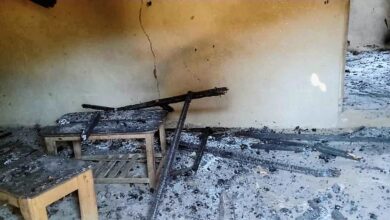Less Than 1% Of Chad’s Land Is Occupied But 80% Of Court Cases Concern Land

All the land occupied in Chadian villages, towns, hamlets and other settlements put together amounts to just 0.2 per cent of the entire national territory but 80 per cent of court cases in the country concern land.
According to the Developer/Urbanist in chief and Director-General in the Ministry of Territorial, Habitation and Urban Development, Alaina Yacoub, Possey, the high incidence of litigation concerning land in the country is caused by corrupt and unscrupulous officials who trade in official land titles to the detriment of otherwise peace-loving citizens.
“Many citizens accuse lands and surveys agents of being involved in clandestine allocation of their lands to rich individuals whereas the allocation of land in urban areas is done by the Commission for the Allocation of Land in Urban Zones presided over by the Director General in the Ministry of Territorial, Habitation and Urban Development with the Mayor of N’Djamena as Secretary of the Commission,” Possey said.
He explained that it was technicians of his ministry who elaborated urbanisation plans, especially the plans of plots and restrictive areas elaborated and adopted by the Commission for the Attribution of Land in Urban Zones, popularly known by its French, acronym CATZU.
“During the elaboration of the various urbanisation plans, when it is discovered that people are occupying some parcels of land in respect of the modalities for the utilisation of land in the Republic of Chad, the parcels of land found not to be occupied would be mapped out and counted.
“Areas occupied according to customary laws are submitted to the commission for the attribution of land so that they are properly documented. Thereafter, unoccupied parcels of land are allocated to those who apply for land while those already occupied are regularised by CATZU, according to the rules of land occupation,” the director-general added.
Possey said once parcels of land had been allocated to individuals, such persons were issued attestations which were eventually forwarded to the council authorities for a follow-up of the relevant procedures.
“The council takes note of the parcel of land indicated and carries out its own investigations after which they send to us minutes of their investigations with copies to the quarter head and the individual concerned.
“It is at this stage that a technician is sent to the plot to plant the pillars. However, I cannot tell you here and now that our agents who are accused of bribery and corruption are innocent,” Possey said.
He said in Chad everybody wanted to be a land owner because land ownership was a cultural pride, especially as people had realised that land could be used in business transactions or even money laundering and so were prepared to die for it.
“The work of our agents involves so many temptations and bribery is the order of the day, thus our agents find themselves between the hammer and the chisel,” he said.
As a solution to all the land problems, there must be a national examination of consciences and firmness on the part of officialdom in the execution of decisions that validate state authority, Possey said.
“It is unacceptable for wealthy individuals to use gendarmes and the police in intimidating people over their lands. Urbanisation is also a voluntary policy and if we don’t have the population behind us, whatever money we invest, there would always be difficulties,’’ he said.
Support Our Journalism
There are millions of ordinary people affected by conflict in Africa whose stories are missing in the mainstream media. HumAngle is determined to tell those challenging and under-reported stories, hoping that the people impacted by these conflicts will find the safety and security they deserve.
To ensure that we continue to provide public service coverage, we have a small favour to ask you. We want you to be part of our journalistic endeavour by contributing a token to us.
Your donation will further promote a robust, free, and independent media.
Donate Here




